Histories
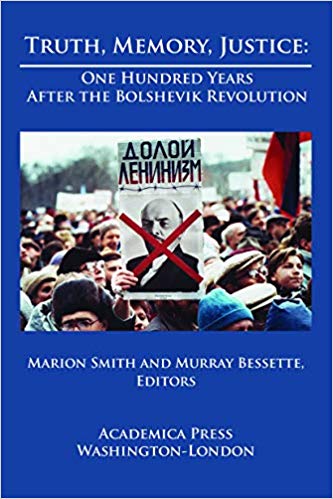
Truth, Memory, Justice: One Hundred Years After the Bolshevik Revolution
by Marion Smith and Murray Bessette
The founding of the Soviet Union inaugurated a century of political turmoil around the globe by pioneering, in spectacular fashion, a new model of political, economic, cultural, and institutional revolution. It was a model that, for decades, exercised considerable fascination and influence over the minds of elites and common people around the U.S. world—both through attraction and revulsion. Through revolution, war, and conquest, the Soviet model was exported to the USSR’s imperial sphere in Europe and found imitators in Asia, Africa, and Latin America, some of which still hold power.
Buy Now
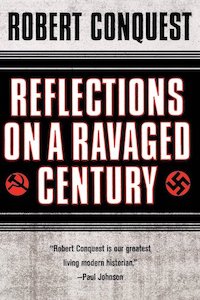
Reflections on a Ravaged Century
by Robert Conquest
Reflections on a Ravaged Century offers an illuminating examination of our past failures and a guide to where we should go next. Conquest assigns responsibility for our century’s cataclysms not to impersonal economic or social forces but to the distorted ideologies of revolutionary Marxism and National Socialism. Reflections was a winner of the Ingersoll Prize, the Richard M. Weaver Prize, and a New York Times Notable Book.
Buy Now
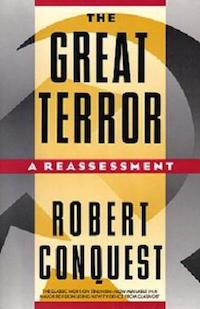
The Great Terror: A Reassessment
by Robert Conquest
The definitive work on Stalin’s purges, Robert Conquest’s The Great Terror was universally acclaimed when it first appeared in 1968. Harrison Salisbury called it “brilliant…not only an odyssey of madness, tragedy, and sadism, but a work of scholarship and literary craftsmanship.” And in recent years it has received equally high praise in the former Soviet Union, where it is now considered the definitive account of the period.
Buy Now
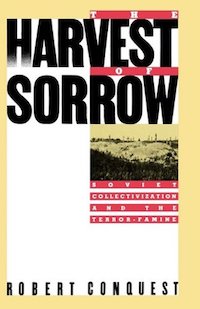
The Harvest of Sorrow: Society Collectivization and the Terror-Famine
by Robert Conquest
The Harvest of Sorrow is the first full history of one of the most horrendous human tragedies of the 20th century. Between 1929 and 1932 the Soviet Communist Party struck a double blow at the Russian peasantry: dekulakization, the dispossession and deportation of millions of peasant families, and collectivization, the abolition of private ownership of land and the concentration of the remaining peasants in party-controlled “collective” farms. This was followed in 1932-33 by a “terror-famine,” inflicted by the State on the collectivized peasants of the Ukraine and certain other areas. The death toll resulting from the actions described in this book was an estimated 14.5 million—more than the total number of deaths for all countries in World War I. The Harvest of Sorrow is a deeply moving testament to those who died.
Buy Now
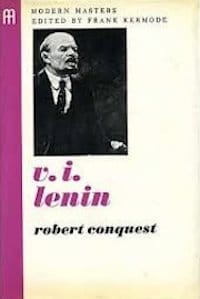
V.I. Lenin
by Robert Conquest
V.I. Lenin is a concise biography of Vladimir Lenin in Viking’s Modern Master Series.
Buy Now
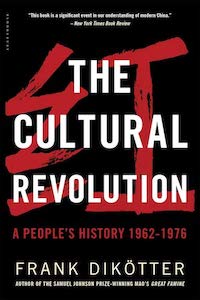
The Cultural Revolution: A People’s History, 1962―1976
by Frank Dikötter
The Cultural Revolution’s goal was to purge the country of bourgeois, capitalistic elements Mao Zedong claimed were threatening genuine communist ideology. The Cultural Revolution: A People’s History, 1962–1976 draws for the first time on hundreds of previously classified party documents, from secret police reports to unexpurgated versions of leadership speeches. After the army itself fell victim to the Cultural Revolution, ordinary people used the political chaos to resurrect the market and hollow out the party’s ideology. By showing how economic reform from below was an unintended consequence of a decade of violent purges and entrenched fear, The Cultural Revolution casts China’s most tumultuous era in a wholly new light.
Buy Now
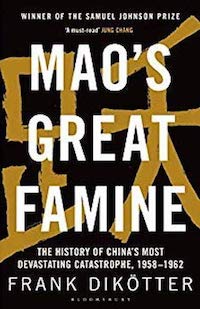
Mao’s Great Famine: The History of China’s Most Devastating Catastrophe, 1958-62
by Frank Dikötter
Between 1958 and 1962, 45 million Chinese people were worked, starved or beaten to death. Mao Zedong threw his country into a frenzy with the Great Leap Forward. It lead to one of the greatest catastrophes the world has ever known. Dikotter’s extraordinary research within Chinese archives brings together for the first time what happened in the corridors of power with the everyday experiences of ordinary people. This groundbreaking account definitively recasts the history of the People’s Republic of China.
Buy Now
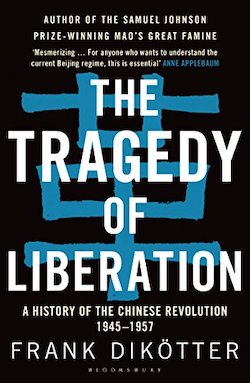
The Tragedy of Liberation
by Frank Dikötter
Frank Dikötter chronicles Mao Zedong’s ascension and campaign to transform the Chinese into what the party called New People. Drawing on hundreds of previously classified documents, secret police reports, unexpurgated versions of leadership speeches, eyewitness accounts of those who survived, and more, The Tragedy of Liberation bears witness to a shocking, largely untold history, interweaving stories of ordinary citizens with tales of the brutal politics of Mao’s court and the horrific policies they implemented in the name of progress. Told with great narrative sweep, The Tragedy of Liberation is a powerful and important document giving voice at last to the millions who were lost, and casting new light on the foundations of one of the most powerful regimes of the twenty-first century.
Buy Now
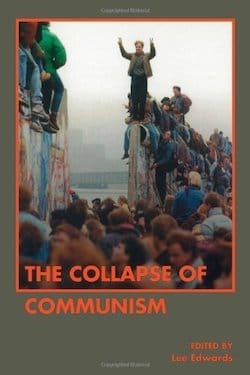
The Collapse of Communism
by Lee Edwards
Experts continue to debate one of the most important political questions of the twentieth century—why did communism collapse so suddenly? The Collapse of Communism suggests that a wide range of forces—political, economic, strategic, religious, the role of the principled statesman and the brave dissident—brought about the collapse of communism.
Buy Now
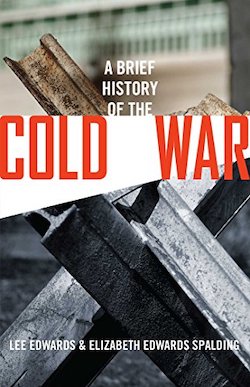
A Brief History of the Cold War
by Lee Edwards and Elizabeth Edwards Spalding
The euphoria that accompanied the fall of the Berlin Wall and the dissolution of the Soviet Union lasted only a moment, dashed by the horror of 9/11. The rise of a new global enemy driven, like the old one, by a hatred of Western freedom and democracy makes the lessons of the Cold War as relevant as ever. Yet to the generation that has grown up since the Cold War’s astonishingly peaceful conclusion, this titanic geopolitical conflict can seem as remote as the Punic Wars. A nation that prizes its freedom must never forget the wisdom and courage with which the Cold War was waged and won.
Buy Now
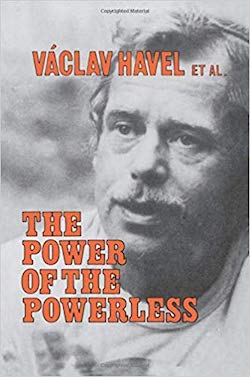
The Power of the Powerless
by Václav Havel
Written shortly after the formation of Charter 77, the essays in this collection explain the anti-democratic features and limits of Soviet-type totalitarian systems of power. They discuss such concepts as ideology, democracy, civil liberty, law, and the state from a perspective which is radically different from that of people living in liberal western democracies. Václav Havel’s essay provides the title for the book. It was read by all the contributors who in turn responded to the many questions which Havel raises about the potential power of the powerless.
Buy Now
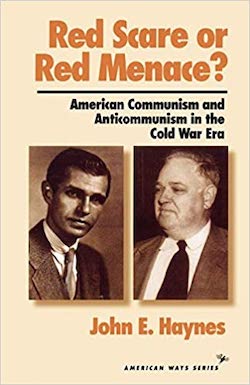
Red Scare or Red Menace? American Communism and Anticommunism in the Cold War Era
by John E. Haynes
As one of a handful of American scholars allowed to review documents in then-newly opened Soviet archives, John Haynes has used fresh evidence to shed new light on the United States’ confrontation with communism at home. In a succinct survey, Haynes traces the buildup of the American Communist party in the 20s and 30s, focuses on the heyday of popular anticommunism from 1945 to 1960, and follows the relative decline of anticommunism as a political issue in the 60s and 70s.
Buy Now
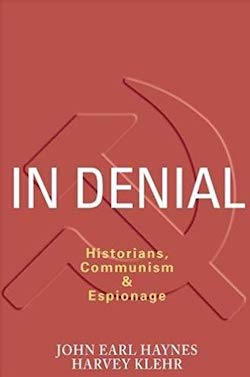
In Denial: Historians, Communism, & Espionage
by John E. Haynes and Harvey Klehr
Beginning in the late 1960s, the study of communism in America was taken over by “revisionist” historians who have attempted to portray the United States as the aggressor in the Cold War and saw suspicion about the American Communist Party (CPUSA) as baseless “paranoia”. Today, revisionists remain dismissive of Stalin’s crimes and have ignored or distorted evidence from Russian archives about espionage links between Moscow and the CPUSA. In Denial makes clear that the conflict over the meaning of the communist experience in America is still very much with us.
Buy Now
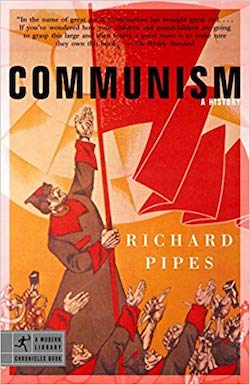
Communism: A History
by Richard Pipes
Richard Pipes has fused a lifetime’s scholarship into a single focused history of communism, from its hopeful birth as a theory to its miserable death as a practice. At its heart, the book is a history of the Soviet Union, the most comprehensive reorganization of human society ever attempted by a nation-state. This is the story of how the agitation of Karl Marx and Friedrich Engels led to a great and terrible world religion that brought down a mighty empire, consumed the world in conflict, and left in its wake a devastation, the full costs of which can only now be tabulated.
Buy Now
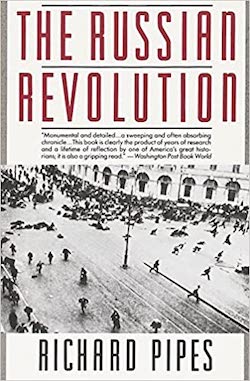
The Russian Revolution
by Richard Pipes
The Russian Revolution is the first attempt in any language to present a comprehensive view of the Russian Revolution, arguably the most important event of the century. There is no shortage of surveys of the subject, but they concentrate on the political and military struggles for power over Russia between 1917 and 1920. Seen from the perspective of time, however, the Russian Revolution was a great deal more than a contest for power in one country: what the victors in that contest had in mind was defined by one of its leading protagonists, Leon Trotsky, as no less than “overturning the world”.
Buy Now
Memoirs
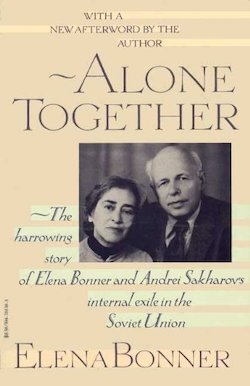
Alone Together: The Story of Elena Bonner and Andrei Sakharov’s Internal Exile in the Soviet Union
by Elena Bonner
Elena Bonner is a distinguished Soviet dissident, the wife and confederate of famous physicist Andrei Sakharov. This memoir Alone Together details her trials at the hands of the KGB, sickness, life in internal exile, recent experiences in the United States, future prospects, and rock-like solidarity with Sakharov.
Buy Now
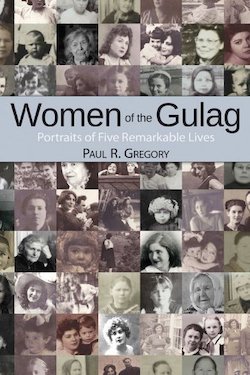
Women of the Gulag: Portraits of Five Remarkable Lives
by Paul R. Gregory
During the course of three decades, Joseph Stalin’s Gulag, a vast network of forced labor camps and settlements, held many millions of prisoners. People in every corner of the Soviet Union lived in daily terror of imprisonment and execution. In researching the surviving threads of memoirs and oral reminiscences of five women victimized by the Gulag, author Paul R. Gregory has stitched together a collection of stories from the female perspective, a view in short supply.
Buy Now
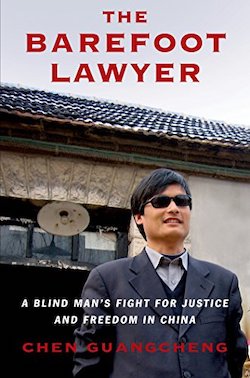
The Barefoot Lawyer: A Blind Man’s Fight for Justice and Freedom in China
by Chen Guangcheng
One morning in April 2012, China’s most famous political activist—a blind, self-taught lawyer—climbed over the wall of his heavily guarded home and escaped. Days later, he turned up at the American embassy in Beijing, and only a furious round of high-level negotiations made it possible for him to leave China and begin a new life in the United States. Both a riveting memoir and a revealing portrait of modern China, The Barefoot Lawyer tells the story of a man who has never accepted limits and always believed in the power of the human spirit to overcome any obstacle.
Buy Now
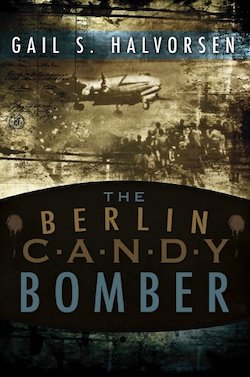
The Berlin Candy Bomber
by Gail S. Halvorsen
In June 1948, Russia laid siege to Berlin, cutting off the flow of food and supplies over highways into the city. More than two million people faced economic collapse and starvation. The Americans, English, and French began a massive airlift to bring sustenance to the city and to thwart the Russian siege. The Berlin Candy Bomber is the story of how two sticks of gum and one man’s kindness to the children of a vanquished enemy grew into an epic of goodwill‚ spanning the globe and touching the hearts of millions in both Germany and America.
Buy Now
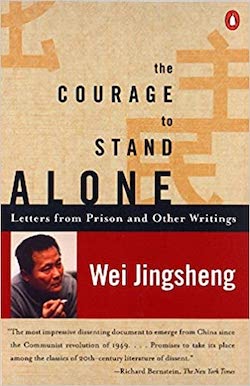
The Courage to Stand Alone: Letters from Prison and Other Writings
by Wei Jingsheng
Internationally recognized as a major publishing event, The Courage to Stand Alone is a collection of prison writings from the world’s most famous political prisoner to Deng Xiaoping, other officials, and his family. Wei Jingsheng, who has spent nearly two decades in prison for “counterrevolutionary” activities, confirms his status as a symbol for Chinese democracy, as he eloquently and fearlessly confronts a regime that not only fails to protect basic human rights but actively violates them.
Buy Now

Hazardous Duty: An American Soldier in the Twentieth Century
by Maj. Gen. John K. Singlaub, USA, Ret. and Malcolm McConnell
Hazardous Duty is a firsthand perspective on America’s long secret war against communism, rendered by one of its primary combatants, Major General John K. Singlaub. In it, he describes military and intelligence missions in Nazi-occupied France, China, Korea, Vietnam, and Nicaragua. It is used as a text book for current military cadets and trainees.
Buy Now
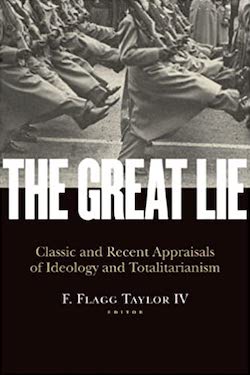
The Great Lie: Classic and Recent Appraisals of Ideology and Totalitarianism
by F. Flagg Taylor IV
The Great Lie showcases the insights of giants such as Aleksandr Solzhenitsyn, Václav Havel, Hannah Arendt, Eric Voegelin, Czeslaw Milosz, Leo Strauss, and Raymond Aron, along with neglected but important thinkers such as Waldemar Gurian, Aurel Kolnai, Leszek Kolakowski, Pierre Manent, Claude Lefort, and Chantal Delsol. The brilliant essays in this volume illuminate the very nature of totalitarian regimes, and the monstrous ideology that is their defining feature. It allows readers to make sense of political evil and how it can attract so many people into its ideological fold.
Buy Now
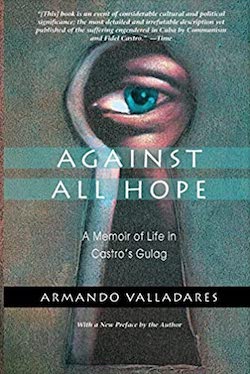
Against All Hope: A Memoir of Life in Castro’s Gulag
by Armando Valladares
Arrested in 1960 for being philosophically and religiously opposed to communism, Armando Valladares was not released until 1982, by which time he had become one of the world’s foremost “prisoners of conscience.” Interned at the infamous Isla de Pinos prison (from whose windows he watched the failure of the Bay of Pigs invasion), Valladares suffered endless days of violence, putrid food, and squalid living conditions, while listening to Castro’s firing squads eliminating “counter revolutionaries” in the courtyard below his cell. Valladares survived by prayer and by writing the poetry that brought his case to international attention.
Buy Now
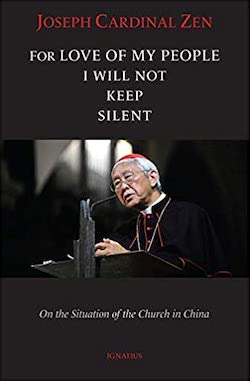
For Love of My People I Will Not Remain Silent: On the Situation of the Church in China
by Joseph Cardinal Zen
Cardinal Joseph Zen is one of the most knowledgeable and credible witnesses to what is happening in China, especially on the relationship between the “underground” church and official government-controlled Patriotic Church communities. It has been recognized―and Pope Francis himself has confirmed―that the historic 2007 letter of Pope Benedict XVI to Catholics in China remains the Magna Carta of the Church in that country. In these lectures, Cardinal Zen explains in detail what he considers is now threatening the fundamental principles of the letter―and therefore ‘his people’.
Buy Now

